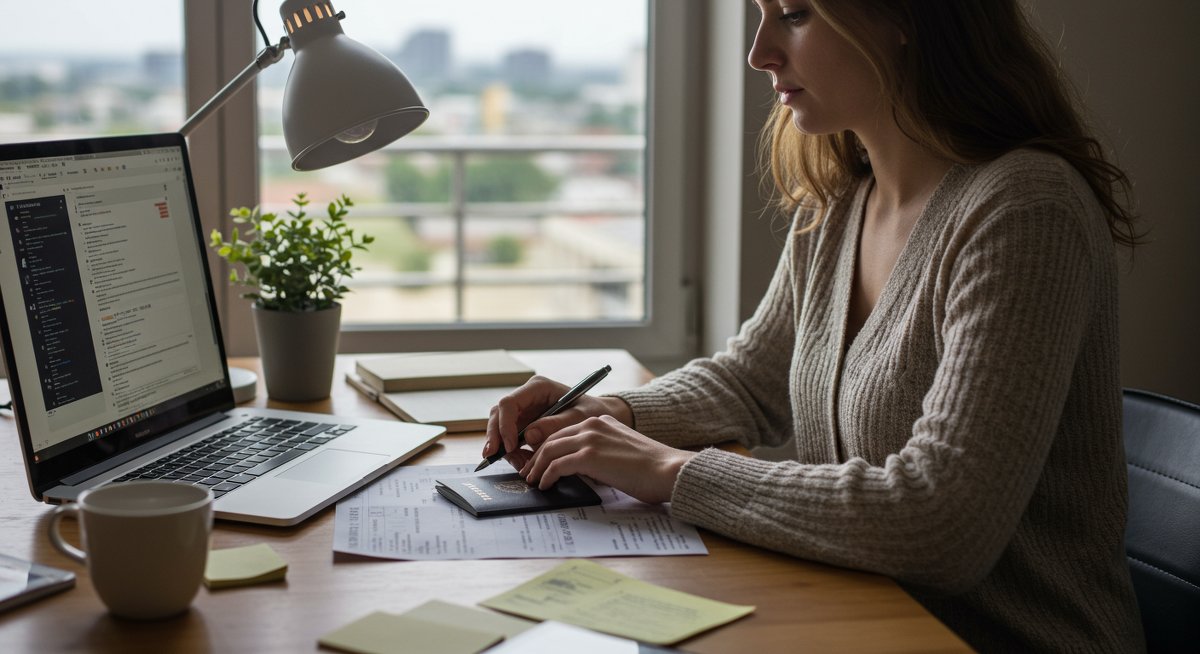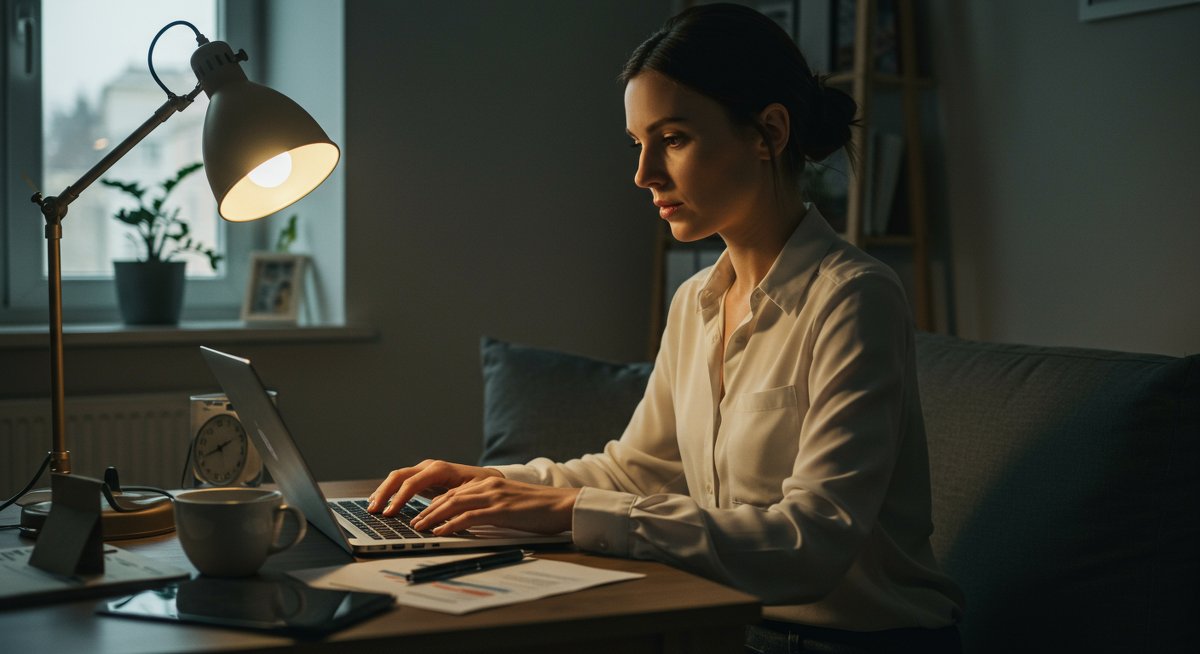Are you dreaming of a life where you can work from anywhere, explore new cultures, and set your own schedule? The digital nomad lifestyle offers incredible freedom, but it all starts with the right visa. This guide is your comprehensive resource for navigating the world of digital nomad visas in 2025. We'll cover everything from visa types and application processes to the best countries for remote workers. Welcome to your journey toward location independence! 
Why Embracing Digital Nomad Visas Matters for Your Nomad Journey
Securing the appropriate visa is the cornerstone of a successful digital nomad journey. Without it, you risk legal issues, hefty fines, and even deportation. A digital nomad visa legally allows you to live and work remotely in a foreign country for an extended period. This protects you and gives you peace of mind so you can focus on what truly matters: exploring, working, and thriving in your new environment. Choosing the right visa ensures you can enjoy your nomadic lifestyle without unnecessary stress or disruption.
One common mistake is overstaying a tourist visa. While it may seem convenient in the short term, it can lead to serious problems. Imagine you're enjoying the beaches of Bali, and you get a notice from immigration. Overstaying a tourist visa can lead to a ban from the country and a criminal record, which will certainly hamper your future travels. Therefore, always prioritize obtaining the correct visa before you go.
Essential First Steps to Becoming a Digital Nomad
Before applying for a digital nomad visa, there are several crucial steps to take. First, assess your income source. Are you a freelancer, remote employee, or business owner? Your income source and proof of income are key elements in many visa applications. Secondly, research potential countries. Each country has different requirements, and some are more friendly to digital nomads than others. Consider factors like cost of living, internet speed, and the local culture when making your choice.
For example, let's say you're a web developer and you're considering Portugal. You'll need to demonstrate a certain level of monthly income (usually around €2,800) to be eligible for their D7 visa. You'll also need to provide proof of accommodation. Contrast this with the visa requirements of Thailand, where the requirements are relatively less stringent. Researching these factors beforehand will save you time and effort.
Common Beginner Challenges & How to Overcome Them
New nomads often face hurdles when navigating the visa process. The language barrier can be a challenge, especially when dealing with official documents. Gather all your necessary documents in advance and have them translated if required. Secondly, dealing with bureaucratic red tape can be frustrating. Be patient, follow instructions meticulously, and consider using a visa application service if necessary.
Consider this scenario: You decide to apply for a digital nomad visa in Costa Rica. You gather all the required documents, including proof of income, a clean criminal record, and health insurance. However, you realize the forms are in Spanish, a language you don’t speak. You can either hire a translator or use online translation tools to get your application submitted correctly. Another challenge is delays. Visas can take weeks or months to process, so start early and factor this into your travel plans. This can be solved by building a buffer of time and having contingency plans in case your visa doesn’t arrive on time.
Tips for Success (e.g., budgeting, finding remote jobs)
Successfully obtaining and utilizing a digital nomad visa requires strategic planning. Thoroughly research each country’s visa requirements, application procedures, and required documentation. Start your application process well in advance of your intended travel date to account for potential delays. Organize all necessary documents neatly, make copies, and keep them readily accessible.
Budgeting effectively is crucial to ensuring you don’t exhaust your financial resources quickly. Create a detailed budget that includes accommodation, food, transportation, entertainment, and visa fees. Consider opening a bank account in your destination country for easy access to local currency and to manage your finances effectively. For instance, in Portugal, the cost of living is relatively low compared to other European countries, allowing you to extend your budget further. Knowing this, you can then plan the rest of your financial strategy.
Building a Sustainable Nomad Lifestyle
Sustainability in the digital nomad lifestyle involves more than just securing a visa. It encompasses financial planning, cultural sensitivity, and personal well-being. Financial planning is critical. Create a diversified income stream to avoid relying on one client or project. Invest in travel insurance that covers healthcare and emergency situations. Build a network of fellow nomads for support and advice.
Cultural sensitivity is vital. Respect local customs, learn basic phrases in the local language, and be mindful of your impact on the environment. Support local businesses and engage with the local community. For example, when traveling in Thailand, learn the local customs of respecting the monarchy and Buddhist practices. By doing this, you’ll find that your travels will be more fulfilling and the local people will welcome you with open arms. Practice mindfulness and meditation to reduce stress, and maintain a healthy work-life balance. Prioritize your mental health to enjoy a long and successful nomadic journey. Building a sustainable nomad lifestyle is an ongoing process of adaptation and growth.

Recommended Resources for New Nomads
Numerous resources can assist you in your digital nomad visa journey. The official websites of the embassies and consulates of the countries you are interested in are the most reliable source of information. Look for country-specific digital nomad visa guides and forums where other nomads share their experiences. Websites like Nomad List provide valuable data on the best locations for remote workers.
Also, consider consulting with a visa application service that can handle the application process on your behalf. This can save you time and reduce stress. Join online communities and forums dedicated to digital nomads. These are great places to ask questions, get advice, and connect with like-minded individuals. For example, if you are considering the Portugal D7 visa, the government website is the best place to find the requirements. However, you can also find information on forums such as Reddit, but take the advice with a grain of salt, because it is not always reliable.
Quick Wins for Your First Nomad Trip
Before embarking on your first nomad trip, make sure your essential documents are in order: passport, visa (if required), travel insurance, and any necessary vaccinations. Create a checklist to ensure you have everything. Before you travel, open international bank accounts to avoid hefty currency conversion fees. Set up automatic bill payments and notifications for your finances. Ensure that you have backups for everything, including your documents, your devices, and your data.
For example, a backup for your important data can be achieved by utilizing cloud storage like Google Drive or Dropbox. Additionally, learn basic phrases in the local language to facilitate communication and immersion into the local culture. If you are going to Spain, then consider learning some basic Spanish. These preparations will help you transition smoothly into the nomad lifestyle and avoid common pitfalls, such as forgetting important documents or overspending on unnecessary expenses.
Next Steps in Your Location Independent Life
Once you've secured your digital nomad visa, the real adventure begins. Plan your itinerary, book your accommodations, and explore your new surroundings. Start networking with other nomads and locals to build a support system. Set up a daily routine that balances work and leisure. Don’t be afraid to try new things and embrace the flexibility of your new lifestyle. Finally, remember to stay informed about visa regulations and update your visa status accordingly.
For example, when you arrive in Lisbon, Portugal, explore the historical neighborhoods, try the local cuisine, and connect with other digital nomads through coworking spaces and meetups. To stay on top of your visa, create a calendar reminder to renew your visa well in advance of its expiration date. To continue to build your location independent life, make a plan to make the best of the next 30 days by setting daily goals and weekly check-ins to make sure you are on the right path.